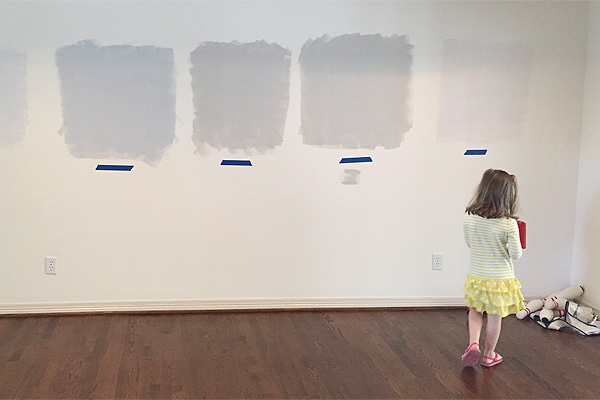Your 3-year-old hasn’t slept through the night in two weeks. And you’ve just gotten a second note from your daughter’s first-grade teacher about disruptive behavior and missed homework.
You’re so frazzled you forgot to brush your teeth this morning. That’s when you ask yourself, “Is this remodel worth it?”
Given the alternative (waiting a decade or two when the kids are grown), parents with children at home can hardly be blamed for biting the psychological bullet and diving into a project that can take weeks — even months. The good news is that you really can have that amazing new kitchen without losing your mind (or custody of your kids). It just requires a fair amount of finesse — and these expert tips:
1. Don’t Skip Self-Care
Keeping your kids sane through a remodel starts with keeping yourself sane. Children pick up on your emotions. If you’re stressed, exhausted, and anxious, they’ll reflect those feelings right back at you.
“When you’re in an airplane, they say put the oxygen mask on yourself first, then you can help the person next to you,” says Dr. Eugene Beresin, executive director of The Clay Center for Young Healthy Minds at Massachusetts General Hospital, and a father of four who survived his own renovation with newborn twins in tow.
“You can’t take care of your kids, set routines, or think about how the kids are reacting to change if you’re stressed,” Beresin says.
“Check in with yourself and make sure you, as the parent and caregiver, have a self-care plan in place for your own construction sanity,” says Lisa Bahar, a California-based marriage and family therapist. That plan could be as simple as regular date nights with your spouse or sticking to your workouts.
2. Disrupt the House, Not Your Routines
Your home might be in shambles (literally!), but you’ll still need to maintain a sense of normalcy.
“Children rely on familiarity, routine, and structure,” says Beresin. “Knowing your children and how they react to change, you can actually prevent stress by using preventative measures as opposed to just reacting to their reaction.”
An example might include eating breakfast at the same time every day — even if it happens in the living room.
Keep in mind your children’s developmental levels, strengths, and weaknesses. For school-aged kids, knowing where they can sit down and do homework every evening goes a long way. Teenagers need a private space to relax, no adults or siblings allowed. And toddlers, who don’t understand why their home is in disarray, might need more cuddling and play.
3. Put the Kids In Charge (of Something Small)
No, you don’t have to hand over the decorating reins to your teenager (unless you were already planning on turning your foyer into a One Direction shrine, in which case, shine on). But allowing them to pick small things, like their bedroom paint color and duvet, or their own stool for the new kitchen island, helps them feel more connected to the renovation.
“If they’re invested, they’ll feel more a part of the whole process,” Beresin says. “The last thing you want is for your kids to feel like hostages.”
4. Model Good Behavior
“It’s inevitable arguments will occur, so you and your spouse or significant other should learn ways to take the discussion away from the children,” says Bahar.
This might mean taking a few deep breaths and escaping to the garage for a meltdown after the contractor tells you he needs two more weeks, or that there’s a structural problem that’s going to cost extra to fix.
5. Explain the Unexpected
For young kids, explaining precisely what a renovation entails can be a struggle. After all, six months feels like an eternity to them.
“Young children work out difficulties through play,” says Beresin. He recommends using Lego sets or building blocks to walk through the renovation process with your kids. Try building a house and knock part of it down, making something new or different with the fallen pieces. “It may not seem like a direct correlation, but it is for a first-grader.”
When Beresin renovated his historic home in Acton, Mass., he was juggling a teenager, toddler, and infant twins.
“One event scared the hell out of my 3-year-old,” he said. “We were in the kitchen and a guy literally fell through the ceiling. We hear this crash and see two legs sticking out.”
That’s some scary stuff for a kid. Beresin recommends reassuring your children that “these events aren’t going to be the way the world is.” Something scary happened, but you still have some control over your home. They’re still safe inside.
After explaining exactly what had happened and that no one was seriously hurt, his 3-year-old still harbored some residual fear whenever she entered the kitchen, but it didn’t take long before the event became a running joke.
“There will always be unforeseen events, whether you have twins or a guy falls through the ceiling,” says Beresin. “It takes a fair amount of resilience to cope with the unpredictable, but your kids need preparation and discussion, and need to know it’s only temporary.”
Related: A Couples Counselor Explains How She Survived a Gut Remodel
